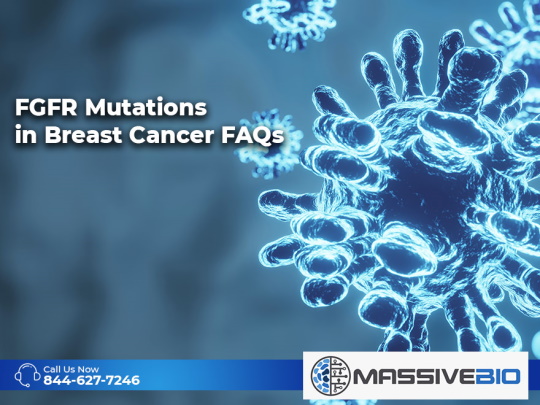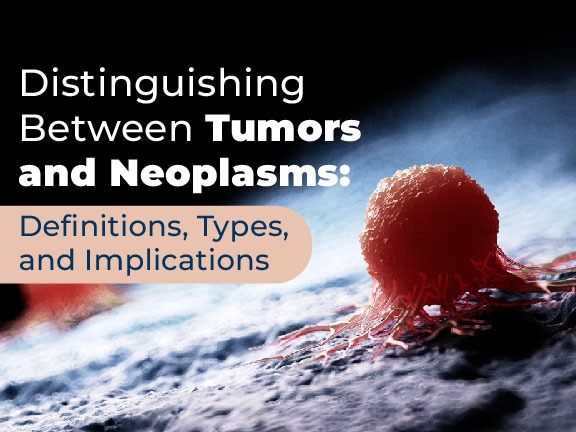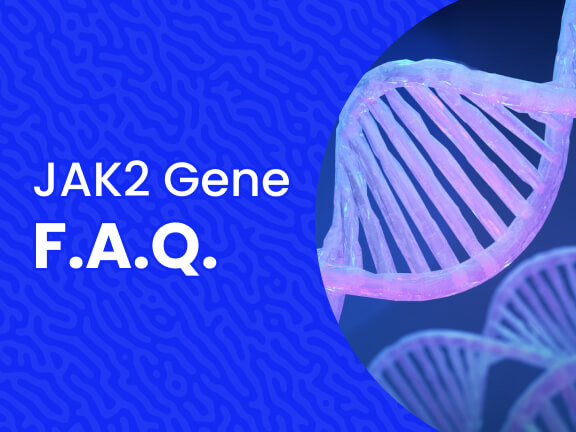What Is Breast Cancer?
Breast cancer is a cancer that starts when cells in the breast begin to grow out of control and form a tumor. Breast cancer tumors can often be felt as lumps under the breast, or seen on x-rays, and not all are cancerous, but it’s important to get any lump checked. While breast cancer mostly affects women, it can also affect men. There are several types of breast cancers and knowing which type you have, and its contributing factors can help determine your treatment plan.
What Is an FGFR Mutation and How Is It Related to Breast Cancer?
FGFR genes provide instructions for making a protein called fibroblast growth factor receptor (FGFR). This protein helps with cell growth and proliferation. Mutated forms of the FGFR gene may cause abnormal cells to grow and spread in the body. Some cancers are caused when there is a change or mistake in the body’s DNA, causing a tumor to grow. These DNA mistakes are known as biomarkers, and physicians can test for them when examining a tumor. When FGFR mutates, it causes an overexpression of the protein, which signals the tumor to continue to grow at a fast rate. There are four FGFR gene mutations and amplification of these, particularly FGFR1 and FGFR2, play an important role in the development of breast cancer. These mutations are present in 10% and 2% respectively of all breast cancers. Breast cancer can often metastasize (spread to other parts of the body) quickly because cancer in breast cells travel through lymph nodes. The FGFR gene can speed up this process further.
Should I Get Biomarker Testing If I Am Diagnosed with Breast Cancer?
If you have been diagnosed with breast cancer, you should get biomarker testing for FGFR and other gene mutations. FGFR abnormalities are found in about 7% of tumors. However, there are specific treatments that target these biomarkers, and can be very effective. If you have the FGFR mutation, you might respond better to a FGFR targeted therapy.
How Do I Find Out If I Have an FGFR Biomarker?
FGFR mutations can be detected through next-generation sequencing (NGS). This is a test in which tissue from a patient’s tumor is placed in a machine that looks for many possible biomarkers at one time. If you don’t have any available tissue, there are other tests that can be done to determine if you have FGFR biomarkers, including blood tests. Make sure to speak to your doctor about having this testing done.
What Are FGFR Targeted Therapies?
Common treatments for FGFR mutations include a targeted therapy FGFR inhibitor drug called Futibatinib. This works by interrupting the signal from the mutated gene to prevent it from reaching the cell and therefore slowing the progression of the tumor. Other treatments include immunotherapy with or without chemotherapy, or clinical trials of other FGFR inhibitors.
How Do I Find Clinical Trials for FGFR Mutation Breast Cancer?
There are over 2,000 clinical trials recruiting patients with breast cancer in the United States. With such a long list of trials, it is difficult to know which one is the most beneficial for you. Our team of patient relations coordinators, case managers, and our artificial intelligence based clinical trial matching system will find the best option for your individual case. Some breast cancer clinical trials focus on new molecules targeting breast cancer biomarkers – there are currently trials actively recruiting patients that focus specifically on FGFR biomarkers. Find clinical trials here.
Sources:
https://www.cancer.org/cancer/breast-cancer/about/what-is-breast-cancer.html












